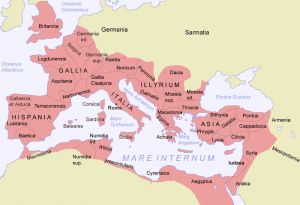The main historical sources we have regarding Jesus’ life and ministry are the gospels (the first four books of the New Testament: Matthew, Mark, Luke, and John) and the Book of Acts, the fifth book of the New Testament. As we’ll cover in this and other posts, these sources
- Were written shortly after Jesus’ ministry, not hundreds of years later, as some have argued
- Are basically reliable from a historical standpoint
- Largely contain first- and second-hand accounts, and are not the products of centuries of legend, as some have argued
- Have come down to us reliably over the centuries, with their original meanings intact and without significant modification




